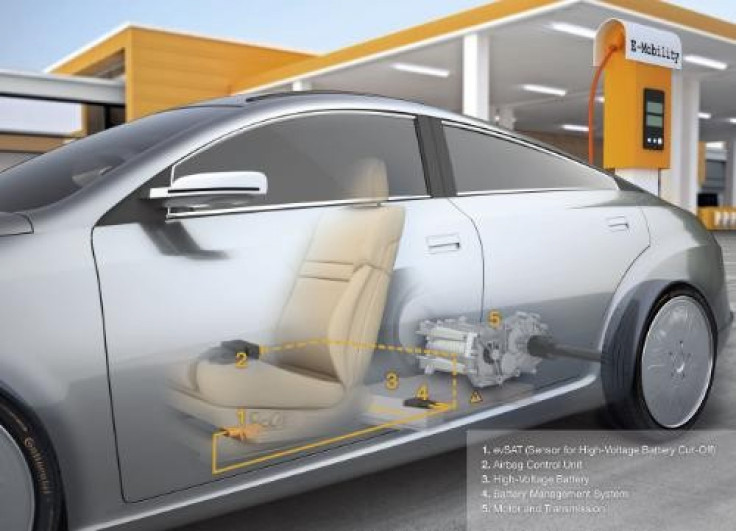Continental unveils new technology - Electric Car Sans Shock

International automotive supplier Continental has developed a sensor (satellite) for electric and plug-in hybrid vehicles which will immediately shut off the high-voltage battery in the event of a collision.
With the help of this sensor, emergency service personnel can come to the aid of accident victims without the risk of suffering an electric shock, the company said.
The evSAT acceleration sensor is active in charge mode. It detects an accident and passes this information on to the battery management system which then shuts off the high-voltage battery, said Dr. Axel Gesell, Senior Manager Platform Development Sensors & Satellites of Continental's Chassis & Safety Division.
The major benefit of our product is that it prevents fire and rescue service personnel sustaining high-voltage injuries when coming into contact with vehicle metal parts or if they have to cut through the vehicle to recover accident victims, Gesell added.
Electric vehicles and plug-in hybrids are powered by high-voltage batteries of up to 400 volts. evSAT will go into series production with a major German vehicle manufacturer in 2012.
Last month, President Obama reiterated his commitment to green technologies by vowing to flood America's highways with plug-in cars and have 1 million electric vehicles on the road by 2015.
Combined global sales of hybrid electric vehicles (HEVs) and battery electric vehicles (BEVs) are expected to total 5.2 million units in 2020, or just 7.3 percent of the 70.9 million passenger vehicles forecasted to be sold worldwide by that year, automobile market research company J.D. Power & Associates said in a recent report.
The Department of Energy said it is investing $2.85 billion in electric vehicles of which $2 billion will go to help US carmakers produce advanced vehicle batteries and drive train components. Around $400 million will be invested to buy, test, and deploy different types of electric vehicles in the marketplace, and $300 million in cost-share projects under the 'Clean Cities' program.
According to a recent report from Bloomberg New Energy Finance, plug-in electric vehicles, including plug-in hybrids and battery electric vehicles, have the potential to make up 9 percent of auto sales in 2020 and 22 percent in 2030 (1.6 million and 4 million vehicle sales respectively).
© Copyright IBTimes 2024. All rights reserved.











